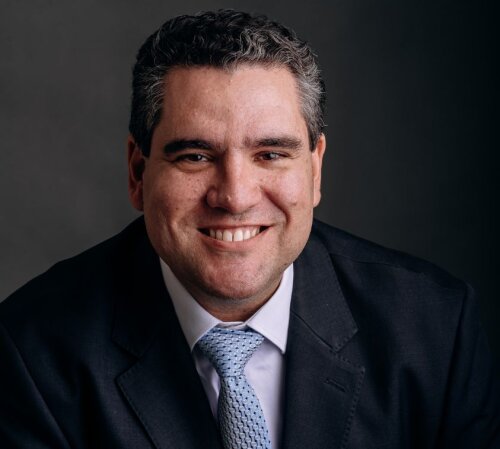Best Foreclosure Lawyers in Praia Grande
Share your needs with us, get contacted by law firms.
Free. Takes 2 min.
Free Guide to Hiring a Real Estate Lawyer
List of the best lawyers in Praia Grande, Brazil
About Foreclosure Law in Praia Grande, Brazil
Foreclosure, known locally as "execução hipotecária" or "execução de imóvel," refers to the legal process through which a lender seeks to recover the balance of a loan from a borrower who has stopped making payments, typically by forcing the sale of the property used as collateral. In Praia Grande, as in the rest of Brazil, foreclosure is regulated by the Brazilian Civil Procedure Code and special laws concerning real estate financing. The process can be judicial or extrajudicial, depending on the type of agreement and whether it includes a fiduciary guarantee. Due to the legal complexities and the potential for significant financial and personal impact, understanding the foreclosure process is essential for both property owners and buyers.
Why You May Need a Lawyer
There are many situations in which individuals might require legal help with foreclosure in Praia Grande. Some of the most common scenarios include:
- Falling behind on mortgage payments and receiving a notice of default.
- Facing difficulties in negotiating with the lender or reaching a payment arrangement.
- Challenging the legality of foreclosure proceedings due to errors or abusive clauses.
- Being unsure about the rights and obligations regarding property subject to foreclosure.
- Wishing to purchase a foreclosed property and needing to ensure a clean title and fair process.
Lawyers specializing in foreclosure can help assess your situation, explain your rights and options, represent you in court or negotiation, and work toward solutions such as refinancing, defense against wrongful foreclosure, or facilitation of property sale.
Local Laws Overview
In Praia Grande, foreclosure procedures are primarily governed by the Brazilian Civil Procedure Code (CPC), as well as the Law of Real Estate Financing ("Lei do Sistema Financeiro Imobiliário"). Local specificities may also affect proceedings, such as municipal property registration requirements and courts' administrative procedures. Key legal points include:
- Foreclosure often involves judicial proceedings, but extrajudicial resolution is common in cases involving fiduciary alienation ("alienação fiduciária").
- Borrowers are typically notified and given a period to pay outstanding debts before the property is auctioned.
- All foreclosure actions must be registered in the local Real Estate Registry Office ("Cartório de Registro de Imóveis").
- Property owners have the right to contest the process if there are legal or contractual irregularities.
- Special protections exist for property that is considered "homestead" ("bem de família").
Frequently Asked Questions
What is foreclosure, and how does it work in Praia Grande?
Foreclosure is a legal process creditors use to recover the debt by selling the property held as collateral. The process may be judicial or extrajudicial and usually involves court petitions, notifications, a grace period for payment, and eventual public auction of the property.
Can I lose my home if I miss several mortgage payments?
Yes. After repeated missed payments, the lender can initiate foreclosure proceedings that may lead to the forced sale of your property.
What steps can I take if I am notified about a foreclosure in Praia Grande?
Seek immediate legal assistance, review your loan documents, try to negotiate with the lender, and check for any procedural errors or abusive contractual terms.
Is it possible to stop a foreclosure after it has started?
In some cases, yes. You might be able to halt the process by settling outstanding debts, negotiating a payment plan, or challenging irregularities in court.
What are my rights during a foreclosure process?
You have the right to be notified, to access all documents related to your case, to defend yourself in court, and to contest the process if you believe there are errors or abusive practices.
How long does the foreclosure process usually take in Praia Grande?
The duration varies, but judicial foreclosures often take several months, while extrajudicial proceedings can be faster if all legal requirements are met.
Can the lender take other assets beyond the property?
Generally, foreclosure targets only the property used as collateral. Other assets are at risk only if additional legal actions for debt recovery are pursued separately.
Is any property protected from foreclosure under local law?
The "bem de família" (family or homestead property) law in Brazil protects one residential property per family from being foreclosed upon in most cases, with some exceptions.
What happens if the auctioned property does not cover my debt?
If the property sells for less than the outstanding debt, the lender can pursue further legal action to recover the balance, subject to limitations and a separate process.
Should I hire a local lawyer or can I handle the process alone?
Because foreclosure cases are complex and subject to strict legal procedures, it is strongly recommended to seek advice from a local lawyer familiar with Praia Grande's specific laws and courts.
Additional Resources
Several resources, organizations, and authorities can provide assistance for those involved in foreclosure in Praia Grande:
- Praia Grande Municipal Court ("Fórum de Praia Grande") - handles judicial foreclosure actions.
- Real Estate Registry Office ("Cartório de Registro de Imóveis de Praia Grande") - maintains property registration records.
- Public Defender's Office ("Defensoria Pública do Estado de São Paulo") - provides free legal aid to qualifying individuals.
- Order of Attorneys of Brazil - São Paulo Chapter ("OAB SP - Subseção Praia Grande") - can refer you to qualified lawyers.
- Banco Central do Brasil - offers general information on real estate financing regulations.
Next Steps
If you find yourself facing foreclosure in Praia Grande, consider these steps:
- Review all correspondence and documentation you have received regarding foreclosure or payment arrears.
- Gather your loan agreements, payment records, and any related documents.
- Contact a local attorney specializing in real estate or foreclosure law for a consultation as soon as possible.
- If eligible, seek assistance from the Public Defender's Office or legal aid services for free or reduced-fee advice.
- Do not ignore summons or legal notices, as missing deadlines can limit your legal options.
- Discuss with your lawyer the possibility of negotiating with your lender or exploring alternative dispute resolution.
Taking prompt and informed action is the best way to protect your rights and explore all available opportunities to resolve foreclosure issues in Praia Grande, Brazil.
Lawzana helps you find the best lawyers and law firms in Praia Grande through a curated and pre-screened list of qualified legal professionals. Our platform offers rankings and detailed profiles of attorneys and law firms, allowing you to compare based on practice areas, including Foreclosure, experience, and client feedback.
Each profile includes a description of the firm's areas of practice, client reviews, team members and partners, year of establishment, spoken languages, office locations, contact information, social media presence, and any published articles or resources. Most firms on our platform speak English and are experienced in both local and international legal matters.
Get a quote from top-rated law firms in Praia Grande, Brazil — quickly, securely, and without unnecessary hassle.
Disclaimer:
The information provided on this page is for general informational purposes only and does not constitute legal advice. While we strive to ensure the accuracy and relevance of the content, legal information may change over time, and interpretations of the law can vary. You should always consult with a qualified legal professional for advice specific to your situation.
We disclaim all liability for actions taken or not taken based on the content of this page. If you believe any information is incorrect or outdated, please contact us, and we will review and update it where appropriate.









